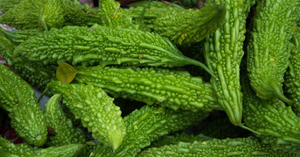A Comprehensive Guide to Relieving Nasal Congestion
Nasal congestion, commonly referred to as a "stuffy nose," occurs when the tissues lining the nasal passages swell due to inflammation of the blood vessels. This swelling often leads to a buildup of mucus, making breathing through the nose difficult. While nasal congestion is commonly associated with colds, allergies, or sinus infections, it can also result from irritants, environmental factors, or chronic conditions. This guide provides a detailed overview of the causes, remedies, and preventive measures to address nasal congestion effectively.
Understanding the Causes of Nasal Congestion
Nasal congestion can arise from various causes, each requiring a tailored approach to treatment. Viral infections, such as the common cold or flu, are frequent culprits, causing inflammation and increased mucus production. Allergies, triggered by allergens like pollen, dust, or pet dander, lead to a similar response in the nasal passages. Sinusitis, an inflammation or infection of the sinuses, often results in persistent and prolonged congestion, accompanied by pressure and discomfort.
Environmental irritants, including smoke, pollution, or strong odors, can aggravate nasal tissues and lead to temporary or chronic congestion. Structural issues, such as a deviated nasal septum, make one nostril more prone to blockage, often worsening congestion. Pregnancy can also contribute to nasal congestion, as hormonal changes increase blood flow to the nasal passages, causing swelling and discomfort.
Effective Remedies for Nasal Congestion
Here are several remedies to help alleviate nasal congestion effectively:
1. Steam Inhalation
Steam inhalation is a time-tested remedy for clearing nasal passages and reducing inflammation. The moist heat from the steam helps thin mucus, making it easier to expel. To perform steam inhalation, boil water and pour it into a large bowl. Lean over the bowl, covering your head with a towel to trap the steam, and inhale deeply for several minutes. Adding essential oils like eucalyptus or peppermint can enhance the soothing effects.
2. Nasal Irrigation
Nasal irrigation is a highly effective method for flushing out mucus, allergens, and irritants from the nasal passages. A neti pot can be used to pour a saline solution through one nostril and out the other, providing instant relief. Saline sprays are a more convenient option, available over the counter, that gently hydrate the nasal passages. Always use distilled or sterile water when preparing a saline solution to prevent infections.
3. Stay Hydrated
Adequate hydration is essential for thinning mucus, allowing it to drain more easily from the sinuses. Drinking water, herbal teas like ginger or chamomile, or warm broths can keep mucus from becoming thick and sticky. Clear fluids also soothe the throat, which may become irritated from postnasal drip.
4. Use a Humidifier
Adding moisture to the air with a humidifier can prevent nasal passages from drying out, particularly in cold or dry weather. Aim to maintain humidity levels between 30–50% for optimal comfort. Regularly clean the humidifier to avoid the buildup of mold or bacteria, which can worsen congestion.
5. Warm Compress
Applying a warm compress to the sinuses helps reduce inflammation and promotes mucus drainage. To use a warm compress, soak a clean cloth in warm water, wring it out, and place it over the affected area. This simple remedy provides soothing relief and can be repeated several times a day.
6. Over-the-Counter Medications
Decongestant sprays like oxymetazoline provide quick relief by shrinking swollen blood vessels in the nasal passages. However, they should not be used for more than three consecutive days to avoid rebound congestion. Oral decongestants like pseudoephedrine can also help reduce swelling, but they may cause side effects such as increased heart rate or insomnia. Antihistamines are particularly effective if allergies are the underlying cause of congestion, as they block the body’s allergic response.
7. Essential Oils
Essential oils like eucalyptus and peppermint are known for their decongestant properties. Adding a few drops to a diffuser can fill the air with soothing vapors that open nasal passages. Alternatively, mix the oils with a carrier oil and apply them lightly to your chest or under your nose for similar effects.
8. Elevate Your Head While Sleeping
Keeping your head elevated while sleeping encourages mucus to drain rather than pool in the sinuses. Use an extra pillow or a wedge pillow to prop yourself up, which can help alleviate nighttime congestion and improve overall breathing comfort.
9. Avoid Irritants
Reducing exposure to irritants is critical for managing and preventing nasal congestion. Common irritants include cigarette smoke, strong perfumes, or household allergens like dust and pet dander. Taking steps to minimize exposure to these triggers can prevent congestion from worsening.
10. Spicy Foods
Capsaicin, the active compound in chili peppers, can temporarily clear nasal passages by thinning mucus and stimulating its drainage. Incorporating spicy foods such as hot peppers, horseradish, or spicy soups into your diet can provide immediate, albeit short-lived, relief from congestion.
When to See a Doctor
Although most cases of nasal congestion resolve with home remedies, medical attention may be necessary if symptoms persist or worsen. Seek a doctor’s advice if congestion lasts more than ten days, is accompanied by severe pain or pressure around the eyes or face, or is accompanied by a fever exceeding 101°F (38.3°C). Thick green or yellow mucus that does not improve may indicate a bacterial infection requiring antibiotics. Chronic congestion could signal structural issues, such as nasal polyps or a deviated septum, which might need surgical intervention.
Preventing Nasal Congestion
Preventing nasal congestion involves adopting healthy habits and avoiding common triggers. Practicing good hygiene by washing hands frequently reduces the risk of viral infections that can cause congestion. Use allergen-proof covers on pillows and mattresses to protect against dust mites, and keep indoor spaces clean to minimize exposure to allergens. Staying updated with flu vaccinations can lower the risk of contracting viral illnesses.
Exercise is another preventive measure, as physical activity boosts immune function and reduces inflammation. A healthy diet rich in immune-boosting foods like citrus fruits, leafy greens, and probiotics strengthens the body’s defenses against infections.
Conclusion
Nasal congestion, while uncomfortable, is often manageable with a combination of home remedies, lifestyle adjustments, and preventive measures. Techniques like steam inhalation, saline irrigation, and the use of humidifiers can provide quick relief, while staying hydrated and avoiding irritants supports long-term comfort. Over-the-counter medications can also be effective, but they should be used judiciously. If symptoms persist or worsen, consulting a healthcare provider ensures proper diagnosis and treatment, allowing for swift recovery and improved quality of life.








Be the first one to comment on this story.